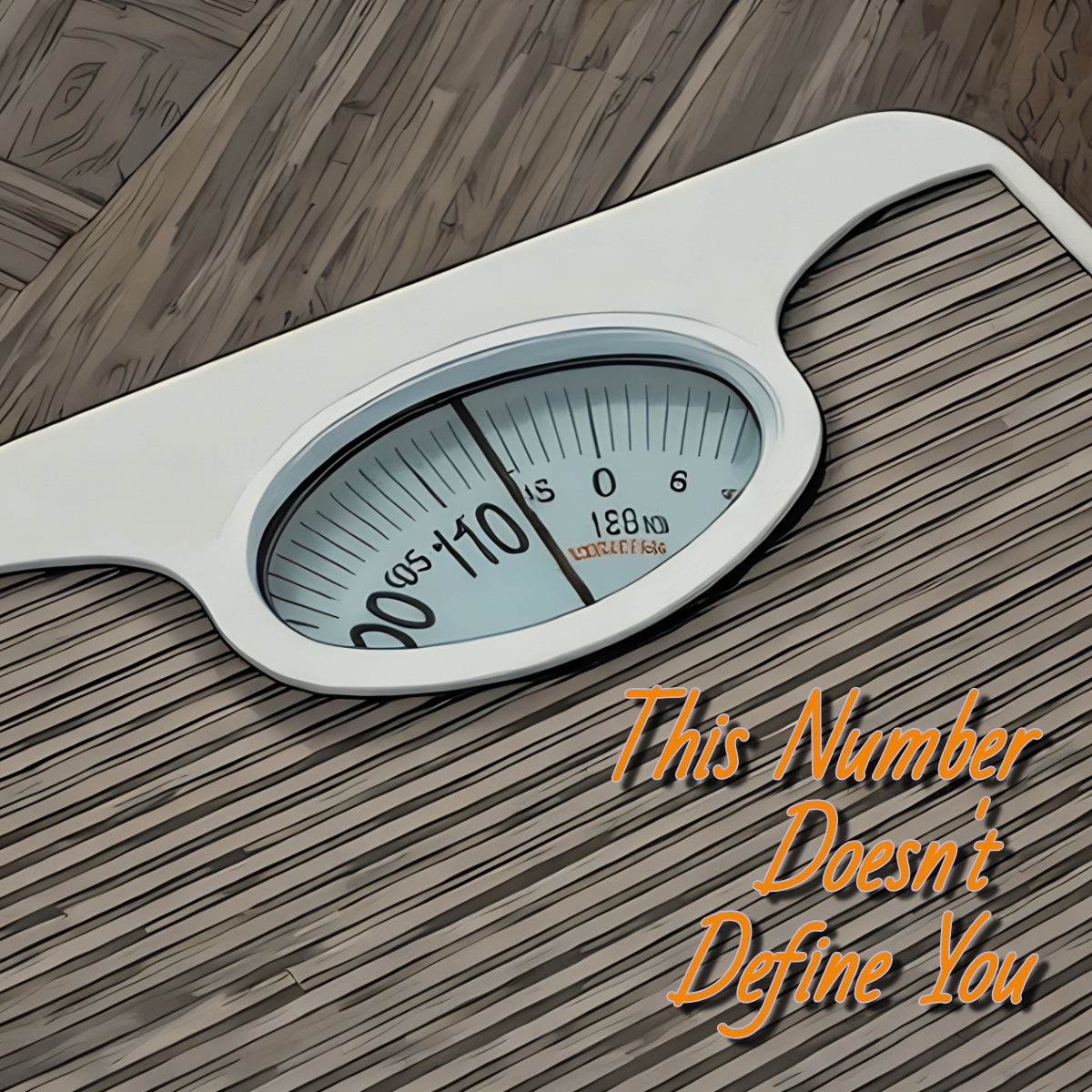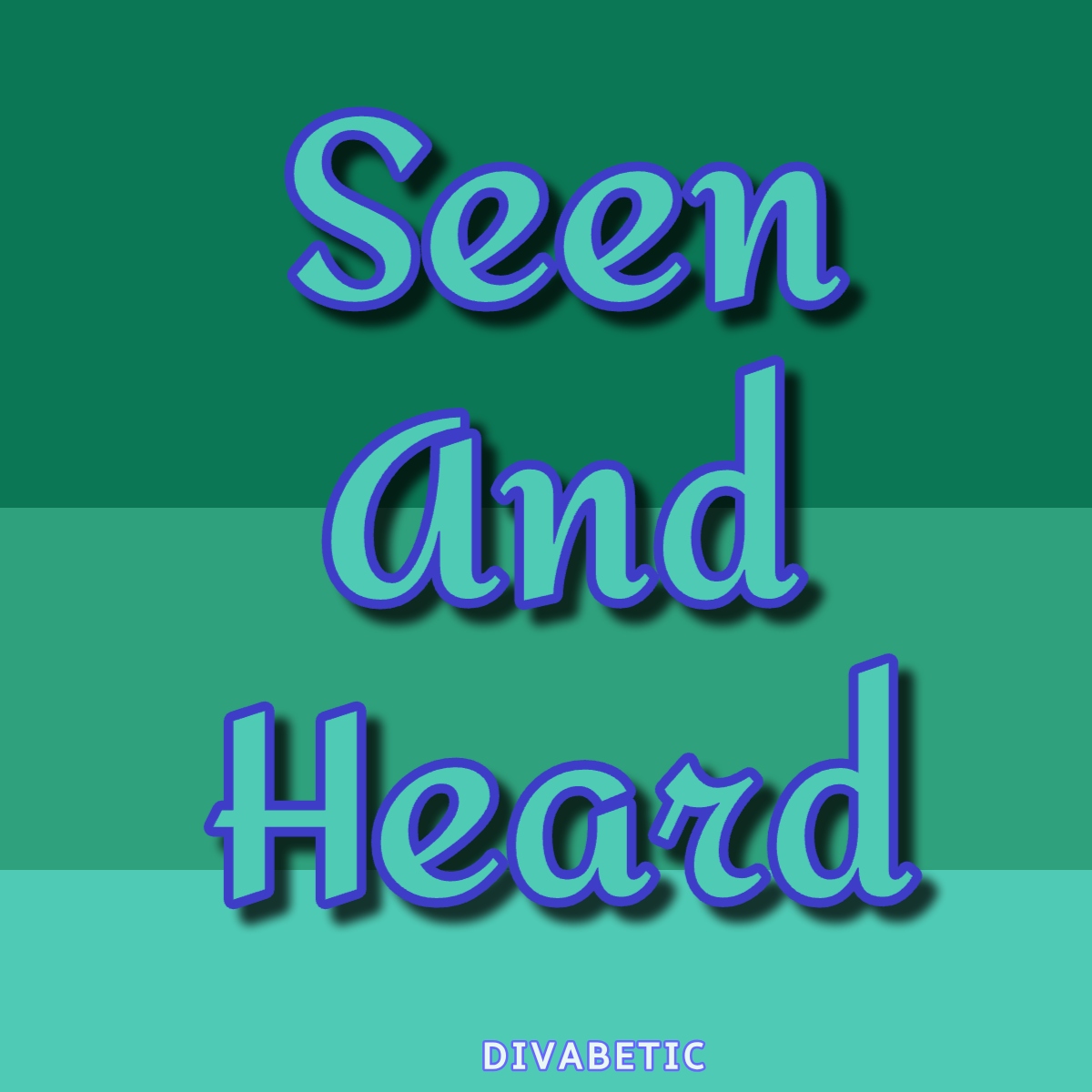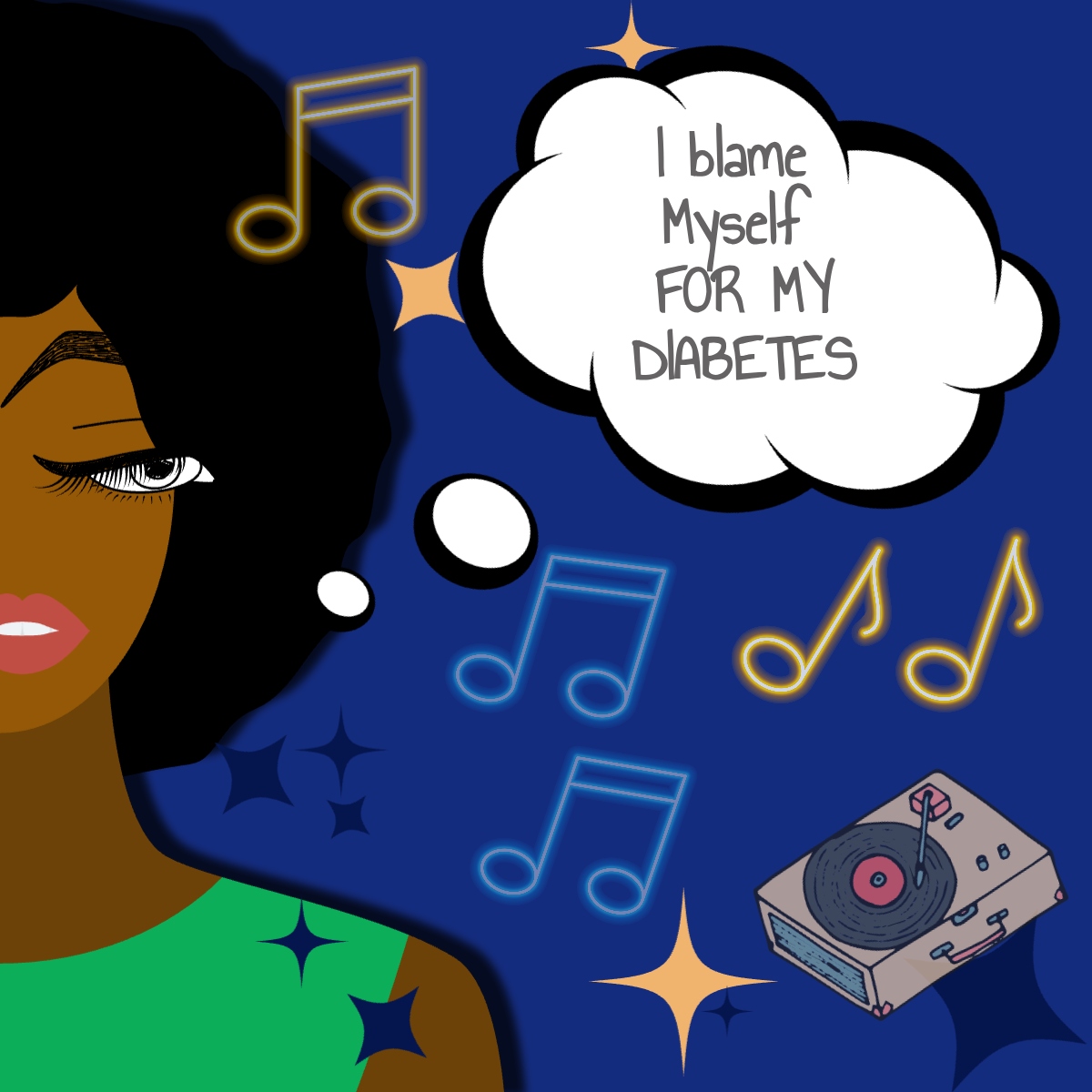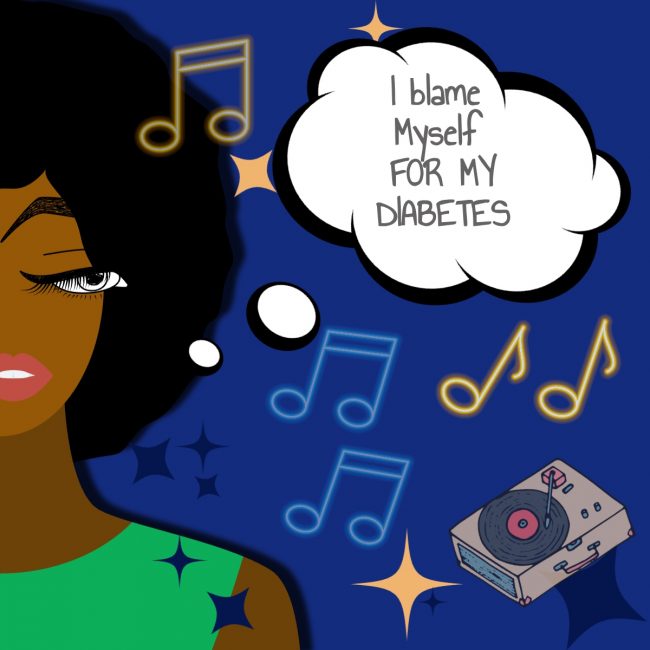Facing the challenges of living with diabetes everyday can be tough! And we’re not afraid to talk about it. You shouldn’t feel afraid either to express that ‘the struggle is real’ to friends, family and co-workers.
Need some inspiration for living ‘out loud’ about your diabetes?
Our Divabetic friend, Jessica Clark will stop by the studio to share her experience of living with the up’s and down’s of type 1 diabetes on November’s Diabetes Late Nite. Join us here on Wednesday, November 14 from 6 – 7:30 PM. CLICK HERE

Recently Jessica shared a very personal post on FB describing one of her saddest and most sincere diabetes moments. Below is what Jessica wishes you knew about her, the diabetes edition:
Every minute of my life is a calculation. And if it wasn’t, or I did it wrong, it can mean long-term tragic consequences. Even death.
I don’t feel good. Ever.
If I tell you I don’t feel good, then I REALLY don’t feel good.
It never works the way I want it to.
I can do the same thing every day, every detail, and have it still come out differently or wrong.
No one understands it.
But everyone is an expert on it.
I get judged for it.
It ruined my self-esteem.
Nothing is easy or straightforward
It changed me as a person, and sometimes I hate that.
I wonder how things could have been different if I didn’t have it.
I wonder what I would physically look like if I didn’t have it
I’ve been made fun of by my family and those closest to me regarding it
No matter what, I am seen as a complainer, wet blanket, trying to get attention, etc.
I go to bed every night not really knowing if I will wake up
I’m treated medically by people who learned how to care for me in books that are decades old
It’s fucking expensive to keep me alive
I feel like a burden physically and financially on people
I spend more to stay alive than people realize, even with insurance.
Giant for-profit corporations dictate the care I can receive and my quality of life.
A cure wouldn’t be profitable
My life is “managed” or “controlled”
Once you aren’t little or cute, few people genuinely care or help.
I’ve lost feeling in all of my fingertips.
I am diagnosed as “significantly visually impaired” because of it. Poor vision and night vision in my left eye. No peripheral vision, depth perception, or night vision in my right eye.
It isn’t easy or simple
It isn’t just eating well or working out
People judge and criticize my food choices.
My skin doesn’t get thicker or tougher to harsh remarks
I have to be “rude” and turn down items I can’t or shouldn’t have. (But then if I do have them, get judged or questioned, see above)
I subsequently make people feel “shitty” once I tell them why I can’t have said item.
But mostly, it’s lonely.
It’s really really lonely.
Here are several more of Jessica’s FB posts illustrating how ‘the struggle is real’ for millions of people living with type 1 diabetes:
“Diabetes awareness month real life post! Today was so shitty. Cracked windshield, dead (expensive) battery, so many things. I’m exhausted! Buuuut it’s 11pm and my blood sugar is 48 and I’m TIREEEDDD. But I can’t go to bed, because I might die. Sooo I’m not hungry or thirsty, but I’m drinking a juice box, eating to save my life. And this isn’t a once in a life time dramatic post. This is weekly, monthly. This is my ugly tired 11pm post of diabetes. This is T1D life. Jdrf one walk shirt was not planned lol.” – Jessica, November 2, 2018, 10:07 PM

“Most days, you control the diabetes. Some days, it controls you. Today was that day for me. It’s scary, and painful, but it’s not often. Bad enough I had to leave work, BG high enough I *probably* should have seen an ER (I didn’t, can’t afford healthcare costs. That’s another story. Lol) Shout out to all of my diabetic friends out there living through this shit we have to deal with.” – Jessica, October 10, 2018 at 4:16 PM

“This is the diabetes you don’t see. Tired, ready for bed, low blood sugar. Every time you test it drops lower and lower, and you keep treating and treating. You can’t breath, you’re confused, and your tired! But you can’t sleep, because if you sleep before it’s safe, you might not wake up. This is real. This is my life, every minute, of everyday, to some degree. This is the me you don’t see.” – Jessica, September 30, 2018
“Waking up to messages, comments, shares, from around the world is amazing, and I thank all of you. The gratitude I have, to have this life, and all of you in it is amazing. It is no secret that I am a “loud and proud” diabetic. A sometimes (unapologetically) open book. I love being able to help share moments that are common threads in the Diabetic community, but that little or no one vocalizes. I love being able to express what others cannot, for various different reasons. I would like to continue to do more for the community, in any way I can. I plan to work on more blogs, podcasts, events, whatever. If you would like to join me, come on in!” – Jessica, November 7, 2018
“My reason for sharing these moments is not to put a rain cloud over Diabetes or Diabetics. It’s simply to show how STRONG and how Human we really are. Most diabetics face challenges no one will ever see or know. Giving a voice to some of the moments and emotions is so important. Letting others know your feelings, and offer their help is crucial in being able to LIVE this wonderful life.”– Jessica, November 10, 2018
We’re celebrating World Diabetes Day with musical inspiration from Aretha Franklin on Diabetes Late Nite scheduled for Wednesday, November 14, 2018, 6 PM, EST. Guests include Poet Lorraine Brooks, Dr. Wendy Satin Rapaport, Diabetes Strong’s owner Christel Oerum, Beautyphonics CEO and “Beneath The Makeup”Author Suzanne Perez, Jessica Clark, Coach the Cure Health Educator Trisha Artman, and the Charlie’s Angels of Outreach. Throughout the podcast we will be playing music from Aretha Franklin’s ‘Aretha Franklin Sings the Great Diva Classics’ courtesy of SONY Music. TUNE IN
Diabetes Late Nite is a fast-paced, full-filled hour of diabetes education and wellness advice that encourages listeners to “laugh a little, learn a lot.”
https://youtu.be/tcpky_48Z7g


















